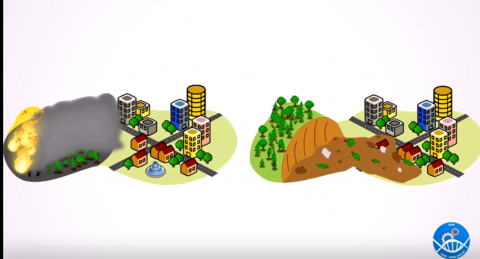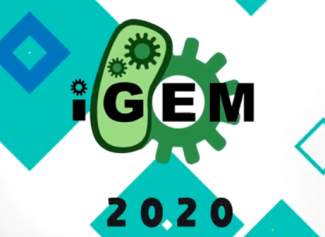
Two teams from Paris-Saclay University shine at the iGEM competition
Launched by MIT in 2003, iGEM is an international synthetic biology competition that brings together thousands of students from across the world. Two teams from Paris-Saclay University were among the 248 teams who presented their projects this year: Evry Paris-Saclay and GO Paris-Saclay. Evry Paris-Saclay brought home a Gold medal for its project, “Rosewood”, while the team GO Paris-Saclay was awarded a Silver medal for its project, “HuGenesS”. The Evry Paris-Saclay team was also nominated in four award categories: Best New Application Project, Best New Composite Part, Best Part Collection and Best Measurement.
Congratulations to both teams for their awards and for taking part in this immense international challenge!
- Piloted by the team at Evry University, the Rosewood project tackles the problem of illegal wildlife trade with a new synthetic biology tool. The students developed biosensors based on toehold switches that can identify the genetic material of rosewood; currently the world’s most illegally trafficked wildlife product.
The project was developed with the financial support of Genopole, Université d’Evry, Université Paris-Saclay & Investissements d’Avenir and Grand Paris-Sud and thanks to the material support provided by SnapGene, New England Biolabs, IDT (Integrated DNA Technologies) and Twist Bioscience, and supervised by the LISSB Laboratory from the Unit UMR 8030 Genomics Metabolics (CEA-CNRS-UEVE, Evry), the Micalis Institute (INRA-APT, Jouy en Josas) and the GenHotel Laboratory (UEVE).
For more information:
wiki: https://2020.igem.org/Team:Evry_Paris-Saclay
presentation video: https://video.igem.org/videos/watch/f9657d5f-0634-4902-9808-1083f38816f4 - The HuGenesS project led by the GO Paris-Saclay team is a new software that improves the design of overlapping synthetic genes. Condensing genetic information will allow synthetic biologists to stabilise the microbial strains used in industrial production and prevent their environmental release.
The project was developed with the financial support of the Institute for Integrative Biology of the Cell (I2BC, UMR9198 CEA/CNRS/UPSUD), with whom the GO Paris-Saclay team carried out its experimental work in the summer, Université Paris-Saclay & Investissements d’Avenir (School BMP, AAP Globetalkers, FSDIE project), and thanks to the material support provided by IDT (Integrated DNA Technologies) and New England Biolabs.
For more information:
wiki: https://2020.igem.org/Team:GO_Paris-Saclay
presentation video: https://video.igem.org/videos/watch/86861753-9ece-4160-8480-ab4a8fbd7cb3

